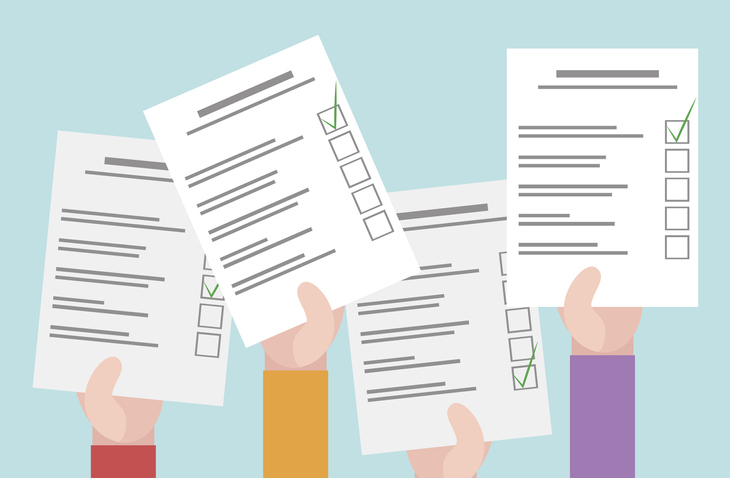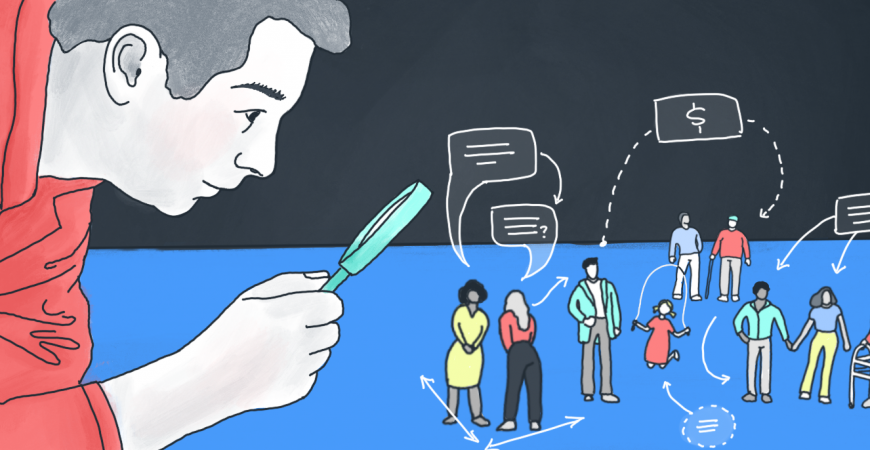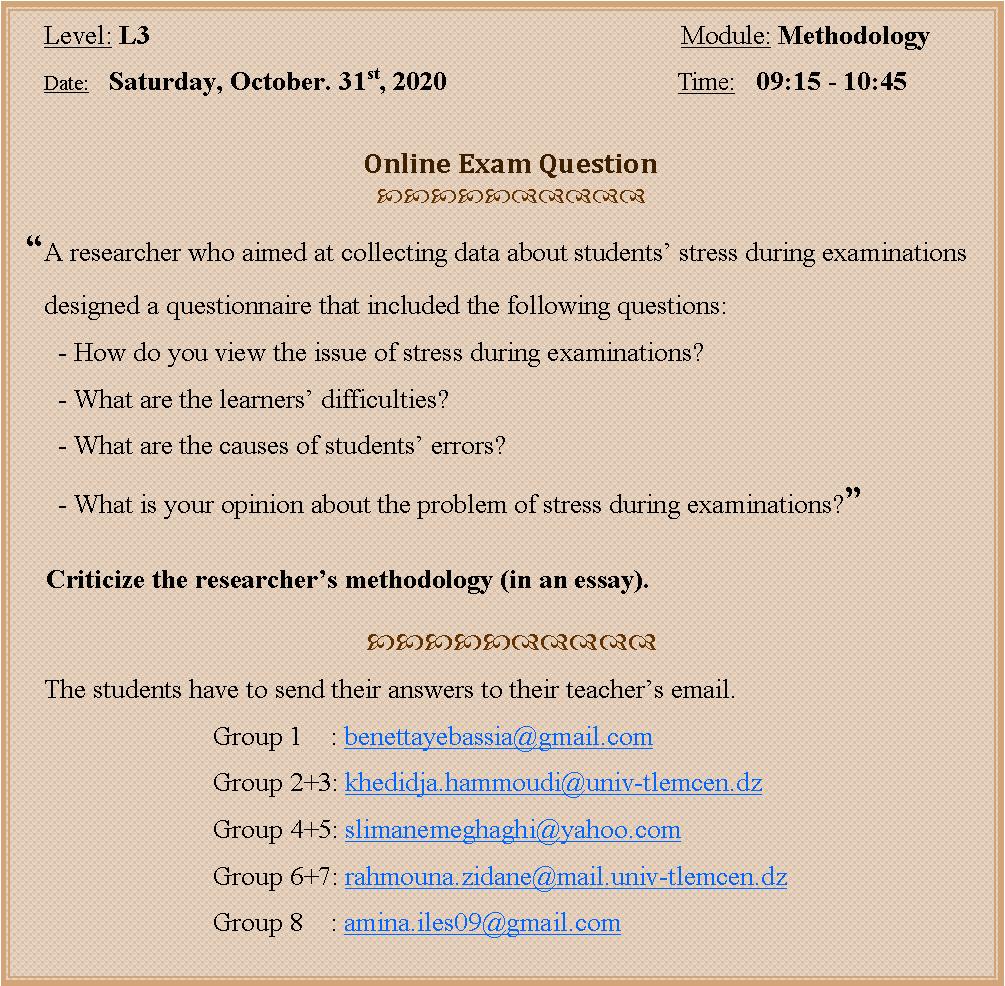Research Methodology
Topic outline
-
Course title: Research Methodology
Credit hours: 1h30 per week (TD)
N° of weeks: 15 Weeks/ Semester (21.30 hours/S)
Level: L3
Coefficient: 2
Credits: 4
UE: Methodology
-
Name: Dr Khedidja HAMMOUDI
Rank: Lecturer
Office: 4 th floor (Head of the Section)
Email: doujamido1@gmail.com
Moodle https://elearn.univ-tlemcen.dz/course/view.php?id=1730
TEAMS: khedidja.hammoudi@univ-tlemcen.dz
-
This course introduces the module of Research Methodology for undergraduate students (L3 classes of the Department of English, Faculty of Letters and Languages). It also gives technical terms, definitions, basic expressions, concepts, illustrations and many other aspects related to the field of research. The primary aim of this course is to theoretically prelude students to knowing what research is and what are the different methodological procedures to achieve the research objectives. This will make them able to practically conduct it and deal with it in the near future as master’s students.
-
✓ Introducing research terminology.
✓ Get accustomed to the technical concepts that are used in research
✓ Helping the learners to undertake research following a certain methodology
✓ Prepare students for future research products (extended essays/ master’s dissertations)
-
Course Contents (as presented in the ministerial canvas (2016-2017)
➢ Semester 5
- Research methods
- The choice of the research topic
- Sources of data
➢ Semester 6
- Data collection
- Data analysis
- Thesis writing
-
- Brown, James Dean. Understanding Research in Second Language Learning. Cambridge: CUP. 1988.
- Cohen, Louis, Manion, Lawrence, and Morrison, Keith. Research Methods in Education. New York: Routledge. 2007.
- Johnstone, Barbara. Qualitative Methods in Sociolinguistics. Oxford: Oxford University Press. 2000.
-
-
In this space, students are allowed to ask questions related to the lecture.
-
-
In this space, students are allowed to ask questions related to the lecture.
-
-
In this space, students are allowed to ask questions related to the lecture.
-
-
In this space, students are allowed to ask questions related to the lecture.
-
-
In this space, students are allowed to ask questions related to the lecture.
-
-
In this space, students are allowed to ask questions related to the lecture.
-
-
In this space, students are allowed to ask questions related to the lecture.
-
-
In this space, students are allowed to ask questions related to the lecture.
-
-
-
This file includes some revision about data collection definition, types, and procedures.
-
-
-
-
-
This is the first lecture in Research Methodology. It introduces basic concepts of the module.
-
-
-
This space is designed for students having questions about the lecture.
-
-
This space is designed for discussion about the lecture.
-
-
Discussion is open in this space.
-
-






